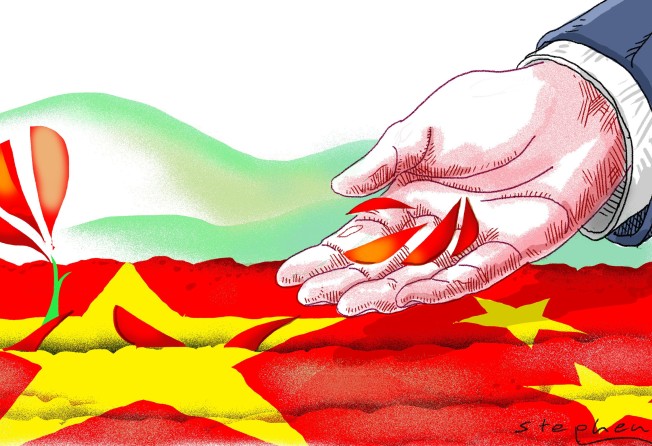Spurned by the West, Huawei should nurture research in Chinese universities instead
- The tech giant should plant the seeds of research collaboration with Chinese institutions, even if they are less renowned than their counterparts in the West, and take the opportunity to improve the transparency of its guidelines

Early this month, MIT became the latest leading Western academic institution to say it would cut future research collaboration with Huawei. It is all but certain that until Huawei resolves its legal disputes with the US government, the Huawei Innovation Research Programme, which offers funding and collaboration opportunities for research, will come under increasing pressure despite the Chinese tech company’s attempts to trumpet its value to society.
Huawei should take advantage of this challenging time to retool its model of partnerships, switch its geographic focus and reframe best practices.
The importance of university collaboration for Huawei cannot be overstated. Meng Wanzhou, who is fighting extradition to the US over allegations of banking fraud to skirt Iran sanctions, made her first public statement after her arrest in Vancouver in an article published by Nikkei Asian Review on January 24, titled “Why Huawei values collaboration with universities”.
The article, adapted from a speech Meng gave at the World Academic Summit in Singapore last September, reveals that Huawei has provided funds to most of the top 100 universities around the world. Meng compares the innovation research programme to a “virtual coffee shop”, created for employees to “absorb the energy of the universe over a cup of coffee”, through the exchange of ideas with universities and research institutes around the world.
Eric Xu, a rotating chairman of Huawei, wrote in the Financial Times in July last year that such partnerships bear fruit that benefits the public, while supporting academic freedom, a cornerstone of US academic success.
Xu also stressed that Huawei does not have exclusive ownership of the findings of the research it supports, nor does it dictate what is published. “Science is borderless,” he says.
Since then, Huawei has undertaken a defiant strategy by indicating its determination to step up investments in foreign universities. The company disclosed to the Financial Times that it spends US$300 million annually on university funding and partnerships.
According to Huawei, 80 per cent of its sponsorship of basic research at US universities has no conditions attached, while the remaining programmes yield intellectual property rights shared by the participating parties.
Despite this attempted clarification, nobody is expecting Huawei to act out of altruism. Meng states it well: “This collaboration will benefit not only our own commercial efforts, but industry and society as a whole.”
Partnerships with universities, in addition to reaping the fruit of the research, also carry public relations benefits through implicit “co-branding” with the prominent institutions and enhance the sponsor’s visibility among scientific communities and potential recruits.
To my knowledge, Huawei has not publicly disclosed the terms of its partnership agreements with research institutes. I requested copies of such agreements through Huawei’s PR department but was told they could not be shared. The Globe and Mail has reported that, in 40 instances, Canadian university professors have transferred full rights to their inventions to Huawei.
Huawei should play the critical role of planting seeds rather than focusing on harvesting the fruits of its university partnerships
Recent controversies about university-business partnerships, including accusations in a US court trial that Monsanto manipulated science to play down the risks of its weedkiller Roundup, have also spotlighted the potential undue influence of self-serving corporate sponsors on research results.
With Huawei’s sponsored research contracts attracting scrutiny, I would question the wisdom of Huawei stepping up its Innovation Research Programme in its current form. To escape the potential association with “predatory sponsorship”, the company would do better to redirect its sponsorship of research in foreign universities to tie-ups with Chinese ones.
It does count the top universities in China, including Peking, Tsinghua and Zhejiang, among its research partners, but not many more. A question asked on the Chinese-language Baidu Knows platform is enlightening: “Why has Huawei been sponsoring the basic research of foreign universities but not domestic ones?”
A simple explanation would be the great commercial value derived from the prestige and quality of work in elite university partners overseas. Prominent research universities in the US, Canada and other Western countries are producing cutting-edge scientific research.
Huawei would have less to gain from partnering with domestic universities that lie further down the ranks in terms of research capacity and academic achievement.
As China closes the scientific research gap in key areas, however, Huawei should play the critical role of planting seeds rather than focusing on harvesting the fruits of its university partnerships.
As a leading Chinese company with global outreach, it should lead the effort to counter the narrative that, in the global trade ecosystem, Chinese companies are “takers” rather than “givers”.
This will also be a good opportunity for Huawei and its university partners to embrace a new model of partnership that values transparency and sound principles.
The American Association of University Professors has issued guiding principles for engagement, on issues including the authenticity of authorship, publication rights, academic autonomy, financial conflicts of interest and intellectual property management. The adoption of these provisions is voluntary and not systemically tracked.
It is its own interest for Huawei to become an active player at the forefront of academia-industry engagement reform. In addition to enhanced disclosure, it should make versions of its partnership agreements – redacted to protect sensitive proprietary information – available for public inspection.
Chiu-Ti Jansen, with advanced degrees from Yale and Columbia, is the founder of multimedia platform China Happenings and a former corporate partner of international law firm Sidley Austin